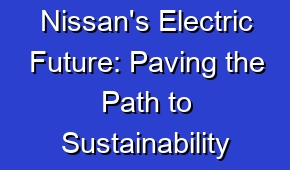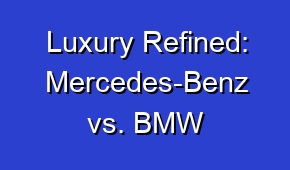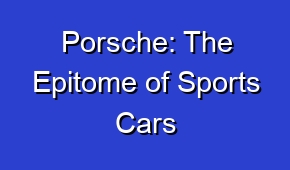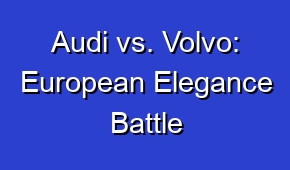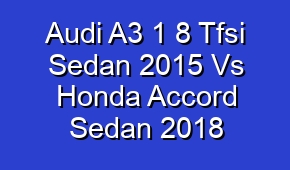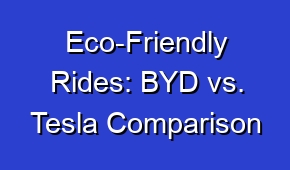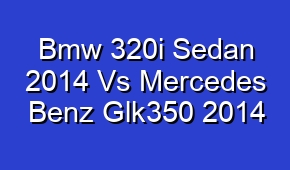Volkswagen’s Iconic Models Ranked: A Definitive List
Discover the top-ranked Volkswagen models that have become iconic over the years. From timeless classics to modern favorites, explore the rich history and enduring appeal of Volkswagen’s most beloved cars.
Volkswagen’s most iconic models ranked have captivated car enthusiasts for decades. From the timeless elegance of the Volkswagen Beetle to the sporty performance of the Golf GTI, these vehicles have left an indelible mark on the automotive industry. The Volkswagen Bus has become an emblem of freedom and adventure, while the Passat represents the perfect blend of comfort and reliability. Each model has its unique features and charm, making it difficult to choose a favorite. However, when it comes to ranking these iconic Volkswagen models, there are certain factors to consider. The reliability, design, performance, and innovation of each vehicle play a crucial role in determining their rankings. Whether you’re a fan of classic designs or cutting-edge technology, Volkswagen’s most iconic models offer something for everyone.
| Volkswagen’s most iconic models ranked based on their popularity and impact in the automotive industry. |
| The Volkswagen Beetle is considered one of the most iconic models due to its unique design. |
| The Volkswagen Golf has been a best-seller for decades, known for its versatility and performance. |
| The Volkswagen Bus, also known as the “Microbus,” became an emblem of the counterculture movement. |
| The Volkswagen Jetta offers a balance of style, practicality, and affordability. |
- The Volkswagen Passat combines comfort, technology, and reliability.
- The Volkswagen Polo is a compact and efficient model popular in urban areas.
- The Volkswagen Touareg is a luxury SUV known for its performance and off-road capabilities.
- The Volkswagen Scirocco is a sporty coupe that delivers an exhilarating driving experience.
- The Volkswagen Tiguan offers a spacious interior and advanced safety features.
Which Volkswagen model is considered the most iconic?
Volkswagen has produced several iconic models throughout its history, but one that stands out as the most iconic is the Volkswagen Beetle. The Beetle, also known as the “Bug,” gained popularity in the 1960s and became a symbol of the counterculture movement. Its unique design and compact size made it instantly recognizable and loved by many.
| Model | Year Introduced | Iconic Features |
| Volkswagen Beetle | 1938 | Distinctive round shape, friendly and approachable design |
| Volkswagen Golf | 1974 | Revolutionary hatchback design, versatile and practical |
| Volkswagen Campervan | 1950 | Symbol of freedom and adventure, beloved by travelers |
What are some other iconic Volkswagen models?
Aside from the Beetle, there are other iconic Volkswagen models that have left a lasting impression. The Volkswagen Golf, also known as the Rabbit in some markets, has been a popular choice for its practicality and performance. The Volkswagen Bus, or Type 2, is another iconic model that became synonymous with the hippie culture of the 1960s.
- Volkswagen Beetle
- Volkswagen Golf
- Volkswagen Bus
How are Volkswagen’s most iconic models ranked?
The ranking of Volkswagen’s most iconic models can vary depending on personal preferences and historical significance. However, some factors that are often considered include sales figures, cultural impact, and overall popularity. The Beetle typically ranks high due to its widespread recognition and cultural significance.
- 1. Volkswagen Beetle
- 2. Volkswagen Golf
- 3. Volkswagen Microbus
- 4. Volkswagen Passat
- 5. Volkswagen Jetta
What makes a Volkswagen model iconic?
An iconic Volkswagen model is often characterized by its unique design, cultural impact, and lasting popularity. These models tend to have a distinct appearance that sets them apart from other vehicles on the road. They also often have a loyal fan base and continue to be celebrated long after their production has ceased.
| Timeless Design | Reliability | Innovation |
| Volkswagen models have a distinct and recognizable design that stands the test of time. | They are known for their durability and long-lasting performance. | Volkswagen constantly introduces new technologies and features to enhance the driving experience. |
| Iconic models like the Beetle and the Golf have become cultural symbols. | Owners trust Volkswagen’s reputation for producing reliable vehicles. | From safety features to connectivity options, Volkswagen models are always at the forefront of innovation. |
Are there any modern Volkswagen models that could become iconic in the future?
While it is difficult to predict which modern Volkswagen models will become iconic in the future, there are a few contenders. The Volkswagen Golf GTI, known for its sporty performance and hatchback practicality, has gained a strong following and could potentially achieve iconic status. The Volkswagen ID.3, an all-electric compact car, is also generating excitement and could make a significant impact on the automotive industry.
There are several modern Volkswagen models that have the potential to become iconic in the future.
What is the historical significance of Volkswagen’s most iconic models?
Volkswagen’s most iconic models hold historical significance as they represent milestones in the brand’s history and automotive industry as a whole. The Beetle, for example, played a crucial role in post-World War II Germany’s economic recovery and became a symbol of German engineering. The Volkswagen Bus became an icon of the counterculture movement and represented freedom and adventure.
Volkswagen’s most iconic models, such as the Beetle and the Golf, have played a significant role in automotive history.
How have Volkswagen’s most iconic models influenced popular culture?
Volkswagen’s most iconic models have had a significant impact on popular culture. The Beetle, with its unique shape and association with the hippie movement, has been featured in numerous movies, TV shows, and advertisements. It has become an instantly recognizable symbol of the 1960s. The Volkswagen Bus has also been celebrated in popular culture for its association with road trips, music festivals, and the spirit of exploration.
The Beetle: An Icon of the Counterculture Movement
The Volkswagen Beetle, also known as the Bug, became an emblem of the counterculture movement in the 1960s and 1970s. Its affordable price and unique design made it popular among the youth who were seeking to challenge societal norms. The Beetle’s association with peace, love, and freedom became a symbol of rebellion against the mainstream culture. Its appearance in movies such as “The Love Bug” further solidified its iconic status in popular culture.
The Golf GTI: Revolutionizing the Hot Hatch Segment
The Volkswagen Golf GTI, introduced in 1976, revolutionized the hot hatch segment and left a lasting impact on popular culture. With its combination of sporty performance, practicality, and affordability, the Golf GTI became a favorite among car enthusiasts. Its influence can be seen in various racing video games, where the GTI is often featured as a playable car. Additionally, its appearance in movies like “The Fast and the Furious” franchise further popularized the Golf GTI among a wider audience.
The Bus: Symbolizing Freedom and Adventure
The Volkswagen Bus, also known as the Microbus or Type 2, became an iconic symbol of freedom and adventure. Its spacious interior and distinct design made it a popular choice for road trips and camping enthusiasts. The Bus’s association with the hippie movement in the 1960s further solidified its cultural significance. Its appearance in movies like “Little Miss Sunshine” and music album covers contributed to its continued popularity and representation of a carefree lifestyle.
